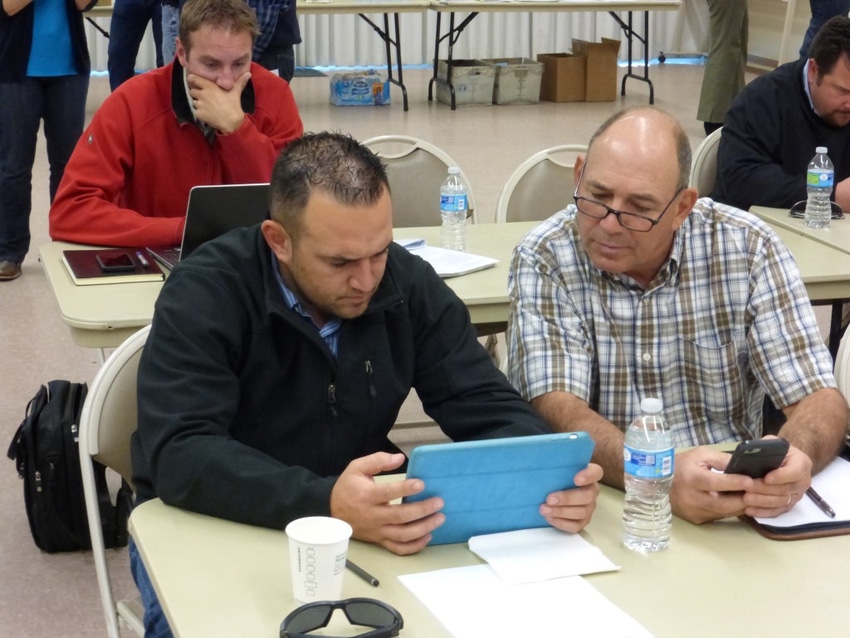
Almond educational workshops debut new sustainability modules
The California Almond Sustainability Program has begun rolling out three new modules this year. The modules include a set of questions to be answered by almond growers and-or processors about their use of specific practices, along with informative and educational material related to the subjects.
March 6, 2015

The California Almond Sustainability Program (CASP), now in its sixth season, began rolling out three new modules at the start of the year.
The modules consist of a set of questions to be answered by almond growers and-or processors about their use of specific practices, along with informative and educational material related to the subjects.
The self-assessments can be completed by hand or online at workshops held by the Almond Board of California (ABC), or online at home or the office.
The new modules are focused on sustainable management practices for growers and processors in the areas of financial management, ecosystem management, and workplace and communities. The new modules are making their debut at a series of educational workshops throughout almond growing regions of California during 2015.
Why should a grower or processor participate?
As almond acreage has increased in California, more attention is being focused on the role almonds play, both good and bad, for neighbors, communities, the state, and ultimately the consumer around the world.
Taking the time to share, in an anonymous fashion, which practices are used helps address questions being raised about almond growing. Data gathered to date through CASP, for example, has proven critical to counter often erroneous reporting on water use and management practices in almonds.
Participation in CASP by a broad cross-section of California almond growers and processors continues to be important in managing the reputation of California almonds among buyers and consumers in the future.
Participation also provides the participant with feedback on how their operations align with what other growers or handlers are doing, and can be an opportunity to reflect on whether there are successful management practices to consider.
Fundamentally, it documents the thoughtfulness of almond growers and handlers in terms of the environment and community.
The new CASP modules, which will add to existing modules on irrigation management, nutrient management, energy efficiency, air quality, and pest management, have been through peer and external-expert review.
Modules include
The new modules include:
Financial Management: The Financial Management module highlights management practices, such as a succession plan, to help ensure an economically sustainable business.
Ecosystem Management: This module includes practices which affect the surrounding landscapes associated with orchards, huller-shellers, and processor operations.
An ecosystem is a complex of living organisms and the physical environment interacting and functioning together. Properly managed agricultural ecosystems can provide a win-win for agricultural productivity and the environment.
Workplace and Communities: This module focuses on management practices for ensuring a safe, healthy, and satisfactory environment for neighbors and employees that helps drive business success.
Regional workshops are where experts, including farm advisors and Almond Board researchers, are sharing the latest news and research at three consecutive workshops in northern, central, and southern almond growing regions.
The first workshop at each location will focus on nutrients and water, the second on bee care and pest management, and the final workshop will feature air quality and energy efficiency. CASP modules may be filled out during the workshops.
All workshops will start at 8 a.m. For a list of CASP workshops, visit the Almond Board website at Almonds.com/Sustainability and choose the ‘Getting Involved’ tab.
To learn more about the workshops and to RSVP, please contact Rebecca Bailey at (209) 343-3245 and [email protected].
Note: Sustainable almond farming utilizes production practices that are economically viable and are based upon scientific research, common sense, and a respect for the environment, neighbors, and employees. The result is a plentiful, nutritious, safe food product.
You May Also Like



